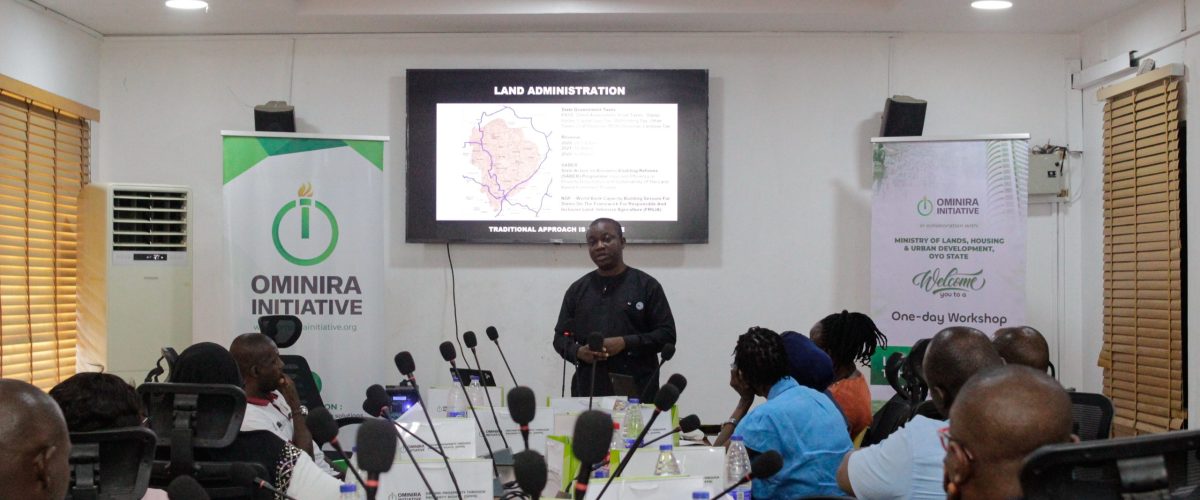Between April and May 2024, Ominira Initiative for Economic Advancement organized five (5) workshops in collaboration with land ministries across the southwest of Nigeria. The series of one-day workshops themed “Land Administration: Technology and Best Practices” is part of our Driving Prosperity through Property Rights (DPPR) project and was held in Ondo, Oyo, Osun, Ogun, and Ekiti states.
The workshop had the facilitators, Professor Akintunde Otubu and Mr. David Afolayan, give insightful presentations on land administration, the Land Use Act, land registration processes, and the need to improve and adopt the proper use of technology in land administration to make registration easier and reduce the number of unregistered lands in Nigeria.
Our Operations Director, Mr. Stephen Oyedemi, stated during his presentation on what Driving Prosperity through Property Rights means that “less than 5% of land in Nigeria is properly registered.” He explained the implications of having more unregistered land in a country and the need to work on increasing the number of registered properties.
While speaking on Best Practices in Land Administration, Associate Professor of Law at the University of Lagos, Dr. Akintunde Otubu, emphasizes the need for global practices in land administration to develop confidence and trust, promote security, safety, and peace. He also emphasizes the need to promote efficient and vibrant land markets where appropriate, taking into consideration aspects of land value and land development. He also explained the role of the state governor, the land use and allocation committee, and the local government in effective land administration.
Our second speaker, Mr. David Afolayan, the Chief Executive Officer at GIS Consult, also laid emphasis on the improvement of property rights through effective land administration by leveraging technology and optimizing resources, thereby unlocking wealth for the nation at large.
The workshops had between 20-23 participants in each state, which primarily consisted of directors and top officials of the ministry in each state. The officials present also contributed by explaining the challenges they face in land administration, especially having to do it manually despite the technological advancements happening around us.
These stakeholders, our team, and the facilitators had productive discussions on the best practices and the way to go about them in land registration and administration. They also discussed the possible solutions to the challenges faced in land administration by both the administrators and the land owners.


